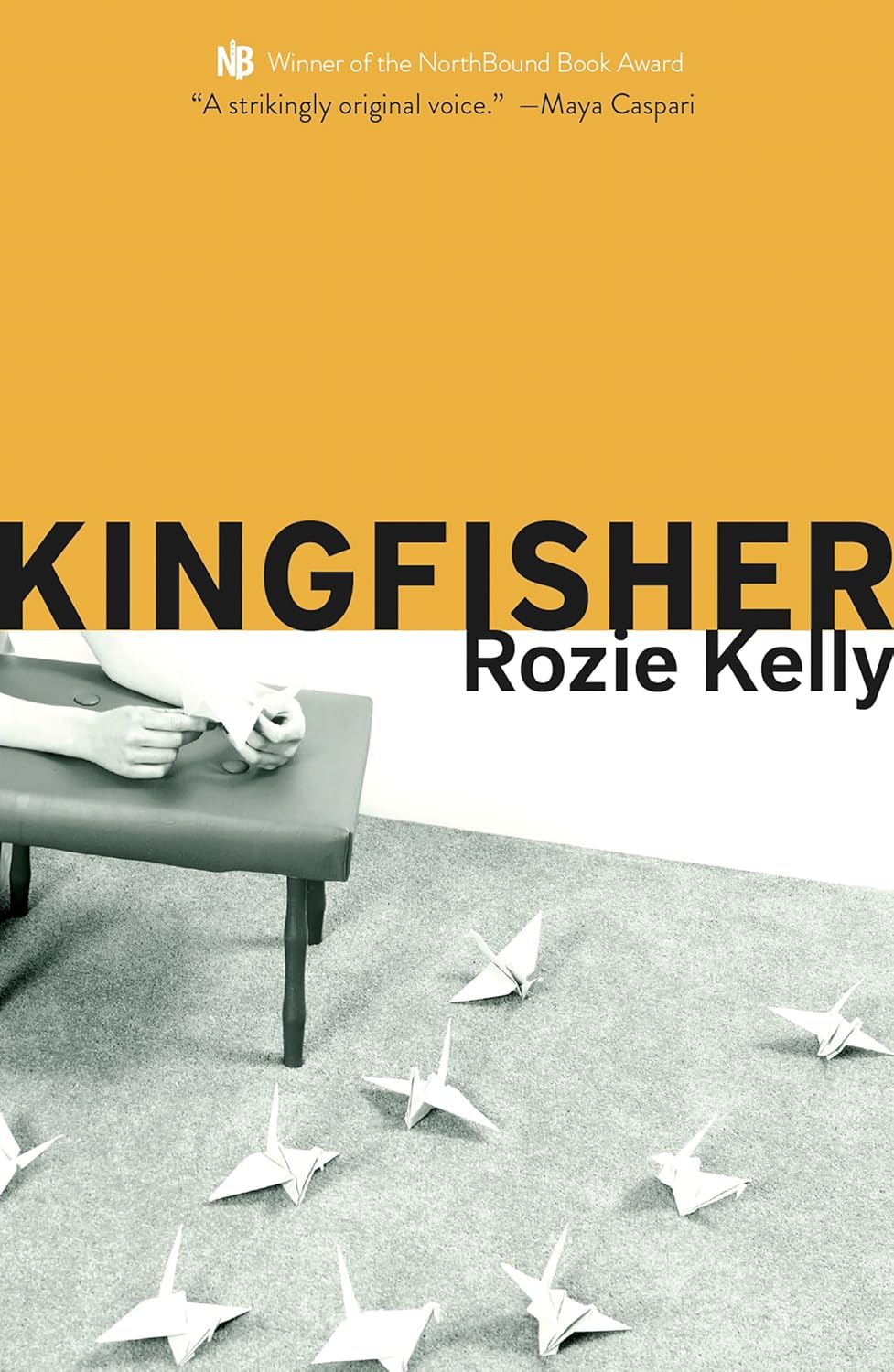You are viewing your 1 free article this month. Login to read more articles.
Rozie Kelly delves into the power dynamics of her award-winning novel Kingfisher
Kelly’s NorthBound Book Award-winning novel Kingfisher centres on a queer man who finds himself attracted to an elusive older woman.
Writer and Arvon creative writing course leader Rozie Kelly wrote her debut novel Kingfisher, which won the 2024 NorthBound Book Award, managed as part of the Northern Writers’ Awards, in a whirlwind eight months. She started writing it in early 2021 after finishing her Master’s degree in creative writing at the University of Manchester, during which time she wrote a different book – but “after the Master’s finished, I just kind of got this voice in my head, of the protagonist, and it really fell out of me”, she explains. “The first draft was very free flowing; it came out really quickly.”
The novel is told from the perspective of the unnamed protagonist, a writer who has recently taken up a short-term position as a writing fellow for MA students at a university. He becomes enamoured with a successful poet also on staff, an older woman considered a “big name” in the faculty. He is surprised to be so viscerally drawn to a woman, living as he does with his partner, Michael, with whom he is in an open relationship. Michael is handsome and wealthy, makes the writer his first cup of tea in the morning and his packed lunches, and is frustratingly reasonable about the writer’s homophobic and spiteful mother. The poet, meanwhile, offers something different. When they become involved, she proves elusive, evading the writer’s attempts to contain her.
I wanted to look at power dynamics, but I’m utterly uninterested in the straight male gaze
The result is an exquisitely crafted exploration of the power dynamics that marble relationships, of the tensions between strength and fragility, domination and submission, care and harm, as dual illnesses throw the writer’s life into freefall and lead him down a path that raises questions of ownership, authorship, violence and intent. Part of what makes the novel so fresh, and its narrative voice so striking, is the intentional subversion of the trope of the younger, more inexperienced woman falling for the older, more prominent man – something Kelly was interested in exploring.
“I’m really fascinated by power dynamics, and there’s always lots of stories about older men with power and status in relationships with young, pretty women,” Kelly says. “I remember seeing a lot of those [and] wondered what would happen if it was the other way around. I wanted to look at those power dynamics, but I’m utterly uninterested in the straight male gaze. I was curious to queer that a bit and look at that dynamic through a slightly different lens.”
She continues: “I also really wanted to look at objectifying a woman who, in popular society, is at a stage in her life where that kind of erotic currency is running out, or we’re supposed to believe that you’re becoming less desirable – which I don’t think is true in the slightest – but I was curious about what that desire would look like.”
While the novel is told from the perspective of a man, as Kelly “wanted to write someone who walks into a room and would never question for a second whether or not he belonged there”, she is most concerned with women: “Although I’ve chosen this difficult man to tell the story through, it’s the women that I’m interested in, really, the psychology of how different women respond to expectations and pressures,” she says, describing the poet, whom the writer refers to as “Kingfisher”, as “an amalgamation of all of the women I’ve ever admired in my life”.
“There are lots of writers who taught me at university, and people in my life, who I just found fascinating, and I was interested in their power and their intelligence and their brains,” she says. “I think I might have sort of fan-girled about them all in this one. She’s so many different people that I admire, and I’m fascinated by that.”










